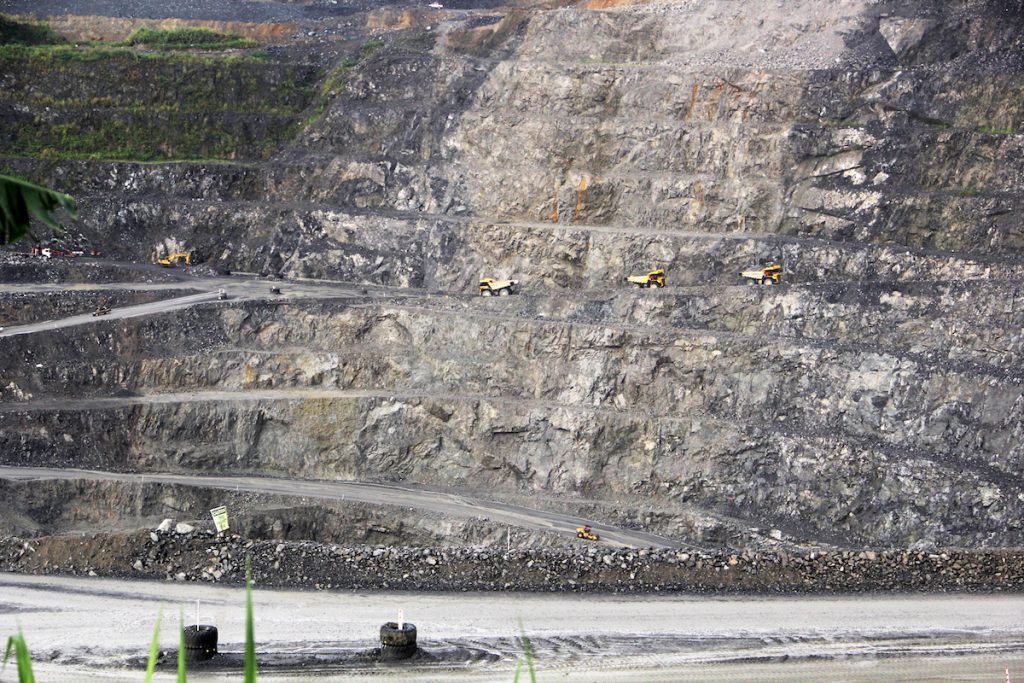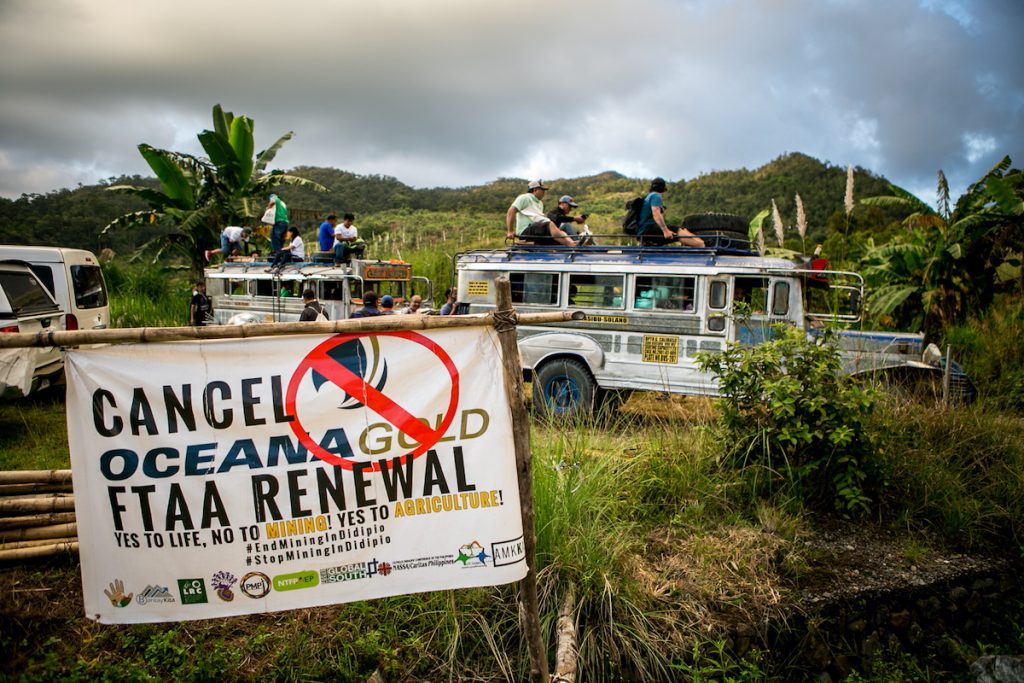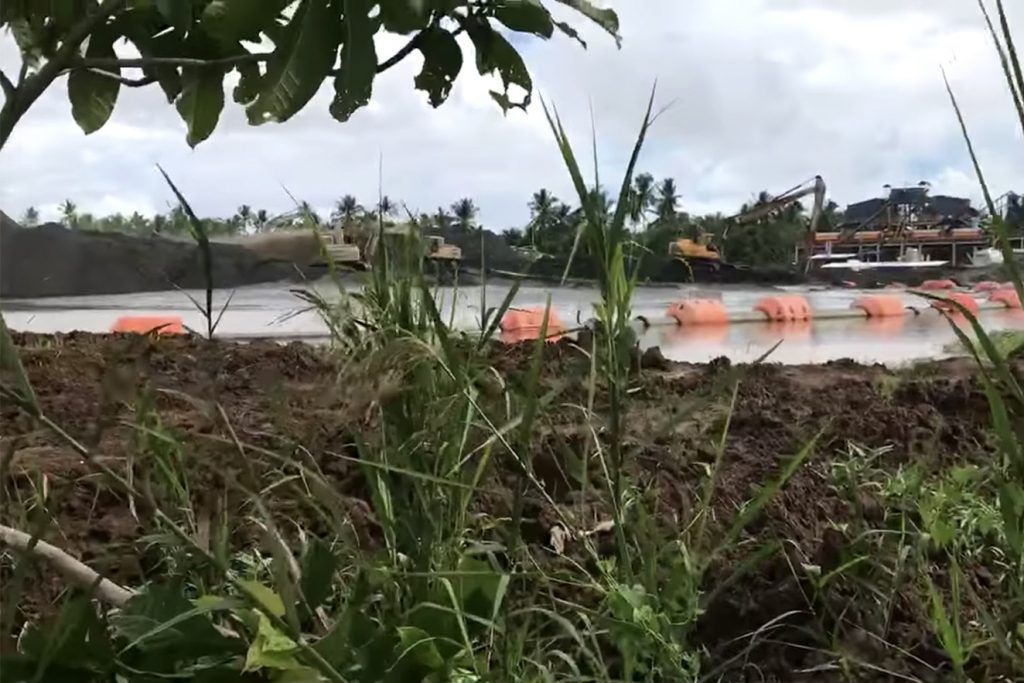
Church and pro-environment groups lambasted the decision of the Philippine government this week to lift a moratorium on new mineral agreements that was imposed in 2012.
The groups said the decision will pave the way for more “unsustainable, destructive, and supremely detrimental” projects that will impact on poor communities and the environment.
“The government may enter into new mineral agreements, subject to compliance with the Philippine Mining Act of 1995 and other applicable laws, rules, and regulations,” read the order that was signed by President Rodrigo Duterte on Wednesday, April 14.
The order said new mining deals can usher “significant economic benefits” to the country, especially during the pandemic.
It also said that allowing mining operations will increase employment opportunities in remote rural areas “thereby stimulating countryside development.”
But Bishop Jose Colin Bagaforo, national director of Caritas Philippines, said the government “is again trying to fool us with false promises at the expense of our already suffering people and deteriorating environment.”
The bishop said the government is choosing “false profit” over the welfare of the people in the peripheries and the protection of the environment.
“[It] is a sign of desperation to solve the ginormous economic gap caused by the COVID-19 pandemic,” he said.
The prelate said the lifting of the moratorium on new mining projects will only open the gates for “environmental plunderers.”
The group Partnership Mission for People’s Initiatives (PMPI) said the government’s promise to generate more jobs by opening new mining sites has already been proven false.

Data from the Mines and Geosciences Bureau showed that the mining sector contributed only nearly 1 percent of the Philippines total employment from 2013 to 2018.
“Poverty incidence is also high in provinces that are host to mining operations,” said Yolanda Esguerra, national coordinator of PMPI.
Data from the 2015 Philippine Statistics Authority show that poverty incidence was higher in prominent mining regions compared to areas without mining operations.
“This data only prove that mining operations within these regions do not necessarily help in alleviating poverty,” said Esguerra.
From 2013 to 2018, the mining sector has less than 2 percent share to the country’s total revenue.
Jaybee Garganera, national coordinator of Alyansa Tigil Mina, said the executive order is “a betrayal” of the Duterte administration against future generations of Filipinos.
“In the middle of a climate crisis and this pandemic, corporate interests and profit has won again over the welfare and benefits of the many,” he said.
Garganera warned that the new policy will prompt communities “to intensify and broaden the resistance against mining.”
“We will defy this callous government who keeps turning a blind eye against mining-affected communities and environmental defenders,” he said.

Rodne Galicha of Living Laudato si Philippines said Duterte’s new order is “unChristian, insensitive, and anti-environment.”
He said it came at a time “when those who fight environmental plunder are being red-tagged, threatened, and even killed.”
“The lifting of the ban on new mining deals goes against the very teaching of love of the Creator and love of neighbor,” he said.
The group Kalikasan People’s Network for the Environment (Kalikasan PNE) said the new policy will only “open up more environmental disasters,” especially under the existing Mining Act of 1995.
Leon Dulce, national coordinator of the group, said combining the new order and the mining law will worsen the situation of the already suffering communities.
“The Mining Act encourages the opening up of mineral lands to up to 100 percent ownership by foreign corporations. It does not orient the mining industry to extract based on people’s needs, but based on unfettered corporate greed,” he said.
Dulce the mining law gives “auxiliary rights to [mining companies] that allow them to cut timber, deplete and disrupt water, and ease out communities away from their lands as they deem fit.”
“We cannot allow this deluge of destructive large-scale mining when communities are still suffering from the converging pandemic and climate crises,” he said.
Source: Licas Philippines
0 Comments